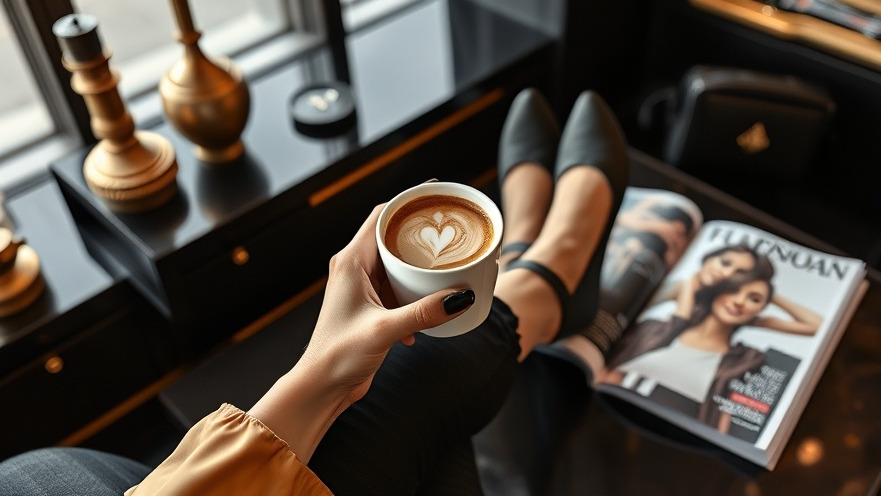
Why Sentimental Clutter Can Burden Our Lives
For many, it's a familiar experience: we hold onto sentimental items that tie us to our past—childhood toys, trophies, handwritten cards from loved ones. Each piece is a vessel for cherished memories, representing milestones, relationships, and experiences that have shaped our lives. However, as these items pile up, they can shift from symbols of love to burdens weighing down our present.
Understanding the Impact of Stuff on Our Well-being
The emotional attachments to our belongings are profound. While these items once brought joy, clustering them can lead to a phenomenon where the "stuff we love" obstructs our ability to enjoy everyday moments. Our homes can become cluttered with tangible reminders of what was, often overshadowing what is. We're left navigating tight hallways, overwhelmed closets, and rooms that feel more like storage units than living spaces.
Connections Between Clutter and Mental Wellness
Research has shown that clutter can adversely affect our mental health. The sight of disorganized spaces can elicit stress and anxiety, distracting us from engaging in the present moment. This is particularly relevant for people in Maryland, where a strong sense of community and family often elevates the value of memories and possessions. When we're surrounded by items that clutter both our physical and mental space, we might find ourselves longing for simpler pleasures: spending time with friends or exploring new hobbies. Unfortunately, mental load becomes heavier as we focus more on what needs constant care and less on what brings true joy.
Practical Tips for Releasing Sentimental Hold
Letting go of sentimental items doesn't mean abandoning memories or cherished individuals; rather, it's a way to honor them by making room for new experiences. Here are some practical steps to consider:
Set Limits: Designate a specific amount of space for sentimental items. This can help you manage how much you're keeping and limit future acquisitions.
Digitize Memories: Consider photographing or scanning items before letting them go. This way, memories remain preserved without taking up physical space.
Reflect and Categorize: Before deciding what to keep, reflect on what each item truly means to you. Ask if it contributes positively to your life now.
Create New Traditions: Instead of holding onto physical objects, think about creating new memories. Perhaps a family outing, or a scrapbook shared among loved ones, can keep the essence of those memories alive.
Building More Connection Amidst Decluttering
By intentionally decluttering, we free ourselves to invest in relationships and experiences rather than possessions. For Maryland residents, this could involve spending more weekends with family in one of the beautiful natural parks or trying out a fitness class. Ultimately, focusing on connections rather than clutter nurtures an enriched quality of life.
The Joy of Minimalism
Embracing a minimalist lifestyle may appear daunting, especially when confronting our emotional ties to material items. However, it's vital to recognize that the memories we cherish are not confined to physical possessions. The joy of life exists in shared moments, laughter, and the simple act of being present with loved ones. Acknowledging this truth allows us to release items while still preserving the spirit of what they represent.
Conclusion: Embrace Freedom Through Letting Go
Ultimately, it's not about loving less; it's about simplifying our lives to make room for more love and new experiences. If you find that sentimental clutter is weighing you down, consider taking the necessary steps to create a living space that reflects the present, allowing you to focus on what truly matters. Take control of your environment and make space for relationships that enrich your life today!
It's time to evaluate the sentimental items you hold dear. Remember, it's okay to let go if they no longer serve you, allowing more room for joyous activities you're passionate about.
 Add Row
Add Row 
 Add Element
Add Element 


Write A Comment